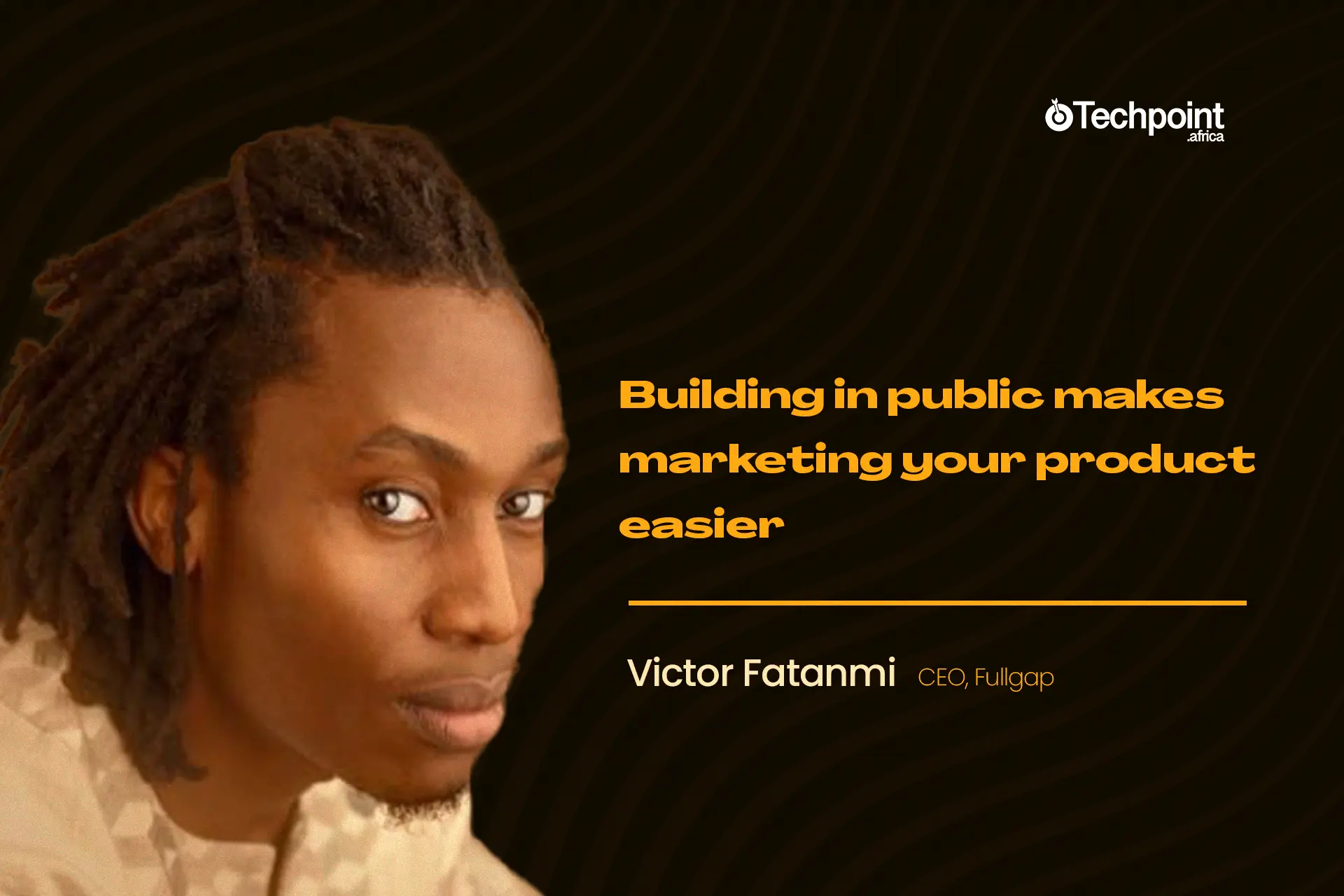In 2020, author and podcaster, David Perell, published an article outlining a ten-year plan for his online writing course, Write of Passage. He revealed some of the products the company planned to launch and the steps it would take to achieve those milestones.
That’s one example of a phenomenon that has been gaining ground in business circles; building in public.
Whereas businesses previously spent months secretly working on a product before announcing it with a big launch, proponents for building in public now provide behind-the-scenes looks at product development, getting real-time user feedback in the process.
Victor Fatanmi is another example of building in public. In April 2023, along with his co-founders, he launched Fullgap, which they dubbed “an operating system for creatives”.
Armed with Twitter, and a good bit of storytelling, Fatanmi has all but singlehandedly led marketing efforts for the startup since inception.
The result? Over 4000 users, managing 400+ projects valued at over $100,000, according to a recent tweet Fatanmi sent out.
3-page pitch deck for https://t.co/NhEeo5zzTb👌🏾 pic.twitter.com/7XhU9XO1Fn
Related Story: Sylndr raises $15.7m to digitise Egypt’s used-car sector— Uncle Fá (@victorfatanmi) July 17, 2023
Before Fullgap, Fatanmi co-founded, and still leads design agency, FourthCanvas, which wasn’t built in public per se. Either way, he should know a thing or two about building in public.
The two-time CEO shares his thoughts on building in public and strategies available to startup founders.
What should founders share?

For Fatanmi, building in public is “carrying the public along with what you are trying to do, and seeking their feedback along the way, even when it’s not yet ready.”
The degree to which founders share is dependent on their business and the sensitivity of the data in question. While sharing certain information about a business may not be wrong, the timing could hurt the business or skew public perception.
“Not everything should be shared, but we also hide much more than we need to hide in this part of the world where nobody talks about their salaries. The people who did it the last time were shouted down. When you’re trying to analyse what to share, ensure you’re not acting out of uninvestigated fear.”
For example, information that could hurt a startup’s investors, its ability to raise capital, or data that competitors can use against the startup can be left out. However, some information that founders choose to leave out at a certain time could be revealed much later.
Benefits of building in public
The Internet has caused huge lifestyle changes; where we could only get news from newspapers and television, we can now access hundreds of news publications and large audiences with a smartphone.
Away from startup founders, individuals already share their journeys through challenges like 100 Days of Code or 100 Days of Design. Most people want to hold themselves accountable and ensure they remain committed, but for founders, the benefits of building in public often differ.
One benefit Fatanmi identifies is its effect on marketing a business. The average social media user is bombarded with ads from individuals and businesses daily, making it harder to get a user’s attention. Consequently, many businesses opt for influencer marketing as an organic means of grabbing attention. Fatanmi believes founders can also generate similar results by sharing their processes and progress with their audience.
“One of the biggest changes we’ve seen behaviourally, especially with Gen Zs, is that people are very cynical. There’s this sense that we’ve seen this before, and people now spot ads faster than before, so the more organic your approach is, the more effective it is. Building in public makes marketing your product easier because people feel they were a part of the process.”
It also makes it easier for investors to discover and consider funding startups. Venture capitalists frequently discover portfolio companies through friends or fellow VCs, and by sharing your process, you could put yourself in front of potential investors.
Building in public is also crucial for attracting talent. By sharing the projects you’re working on and what it feels like to work on them, you give a glimpse of your work culture, an increasingly important metric for employees.
How to build in public
Running a business is hard enough without adding extra responsibilities. Fatanmi admits that building in public is not for all founders.
“Storytelling or building in public is just one approach. Of course, those of us who believe in it will argue for it, but it’s not as absolute as having a good product.”
He advises founders who choose to build in public to delegate tasks. This could take the form of splitting responsibilities with co-founders, hiring senior executives for specific business functions, or having employees craft messages for social media or any other medium.
The channel founders choose is up to them, but Fatanmi prefers Twitter because of its informal tone.
“LinkedIn feels like morning stand-up, and Twitter feels like lunch break.”
With many founders writing articles on platforms like Medium or Substack, he cautions that they need to go beyond dropping links on social media. Rather, they should repurpose the content for social media, while including a link for people willing to read longer pieces.
“The whole idea is that it’s not been so effective telling people nothing and asking them to go elsewhere. On every platform, we need to say something as opposed to redirecting them to another platform.”
With users likely to give their opinions on a product’s direction, founders should receive feedback as they would if they were not building in public.
“Appreciate every feedback, consider every feedback, and then accept the ones that you think make sense, but let everyone know that their feedback is received and considered. If there’s a clear reason why you would not take a recommendation, you should communicate it.”
On remaining transparent throughout the process, he points out that while founders ultimately choose what they work on, staying open about the process ensures they get all the benefits of building in public.











